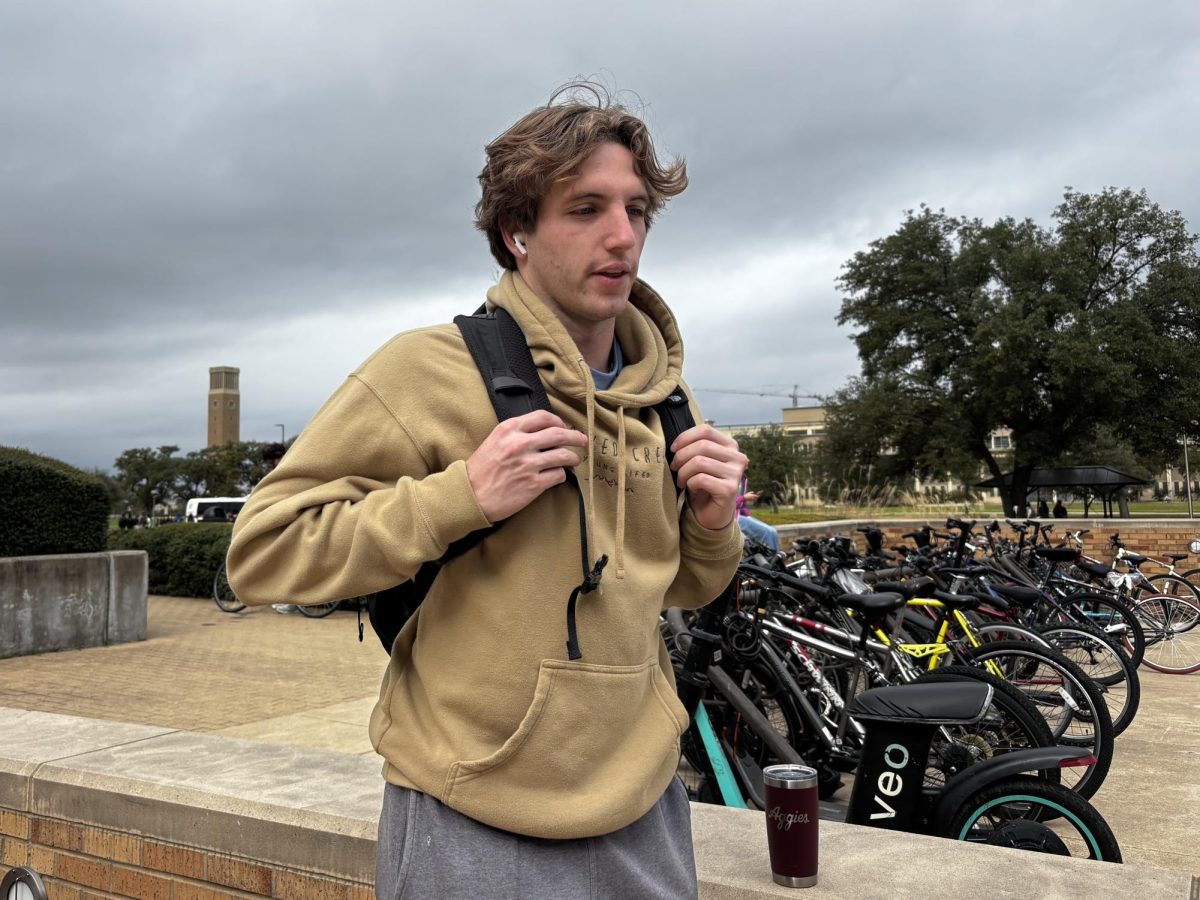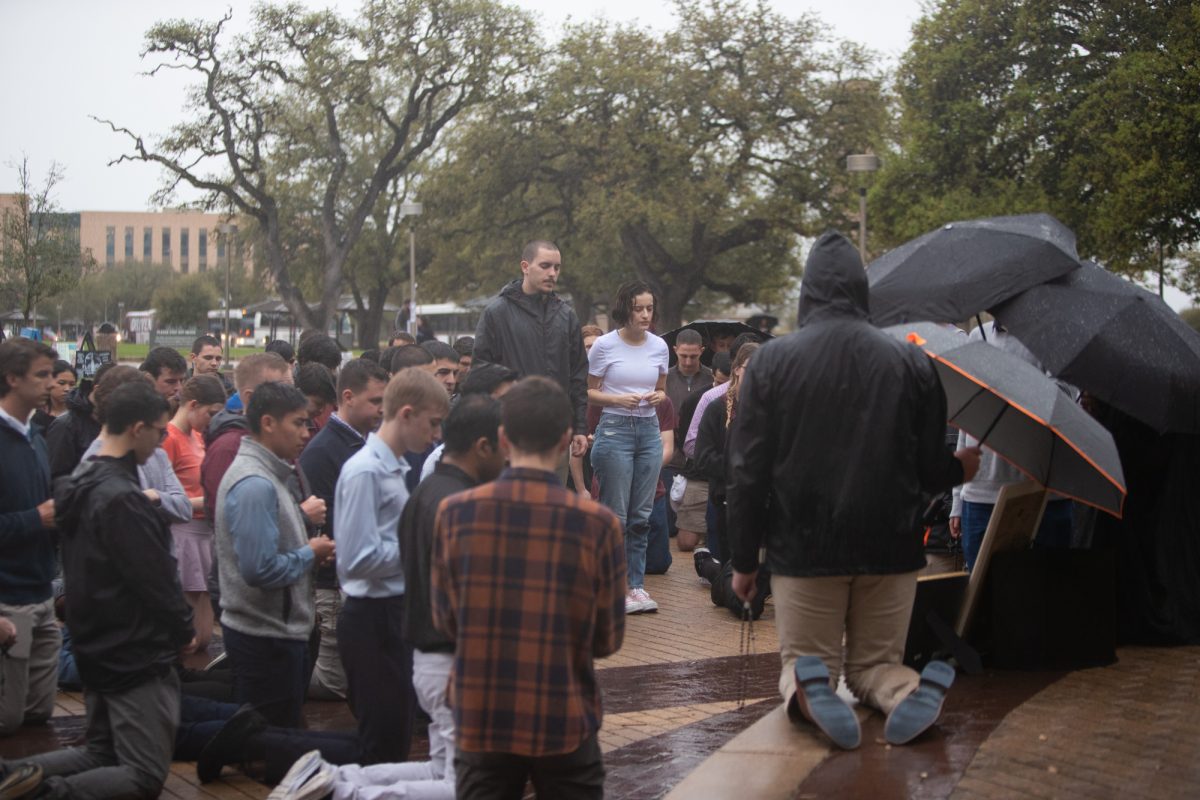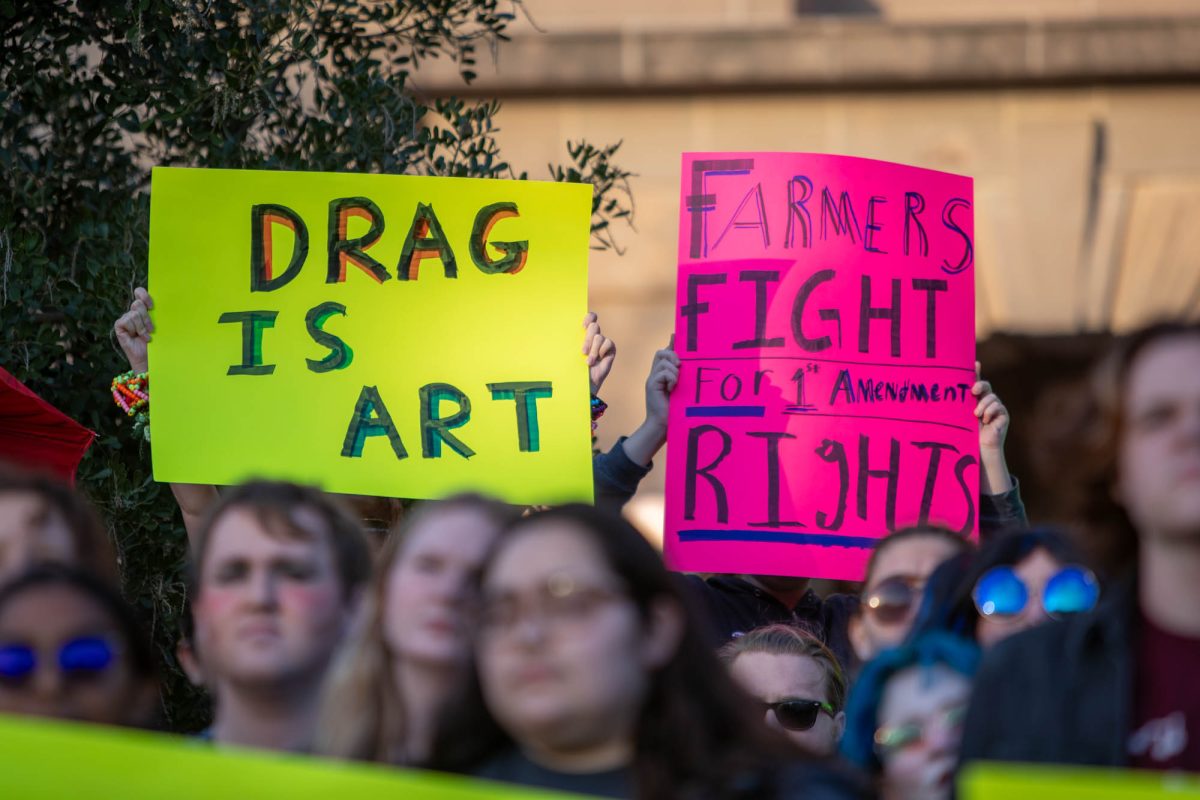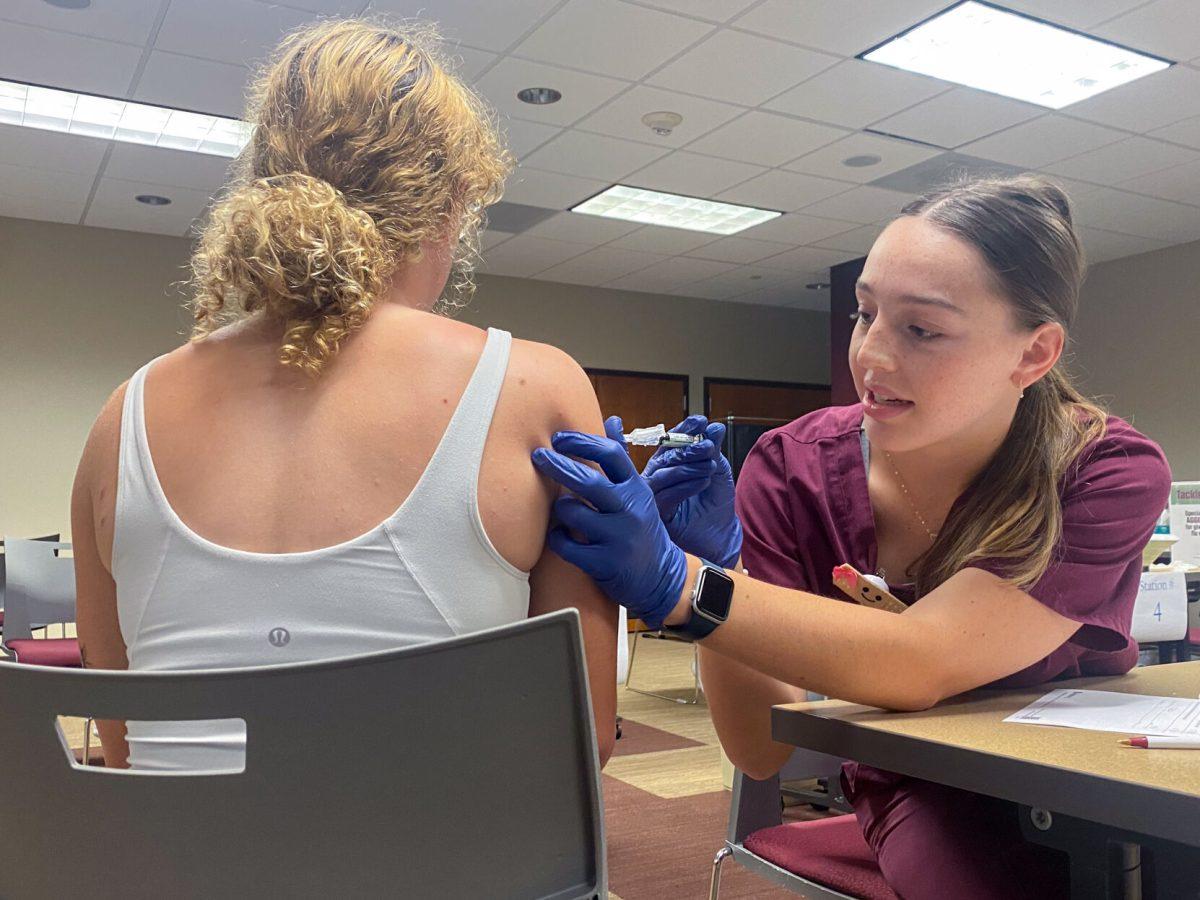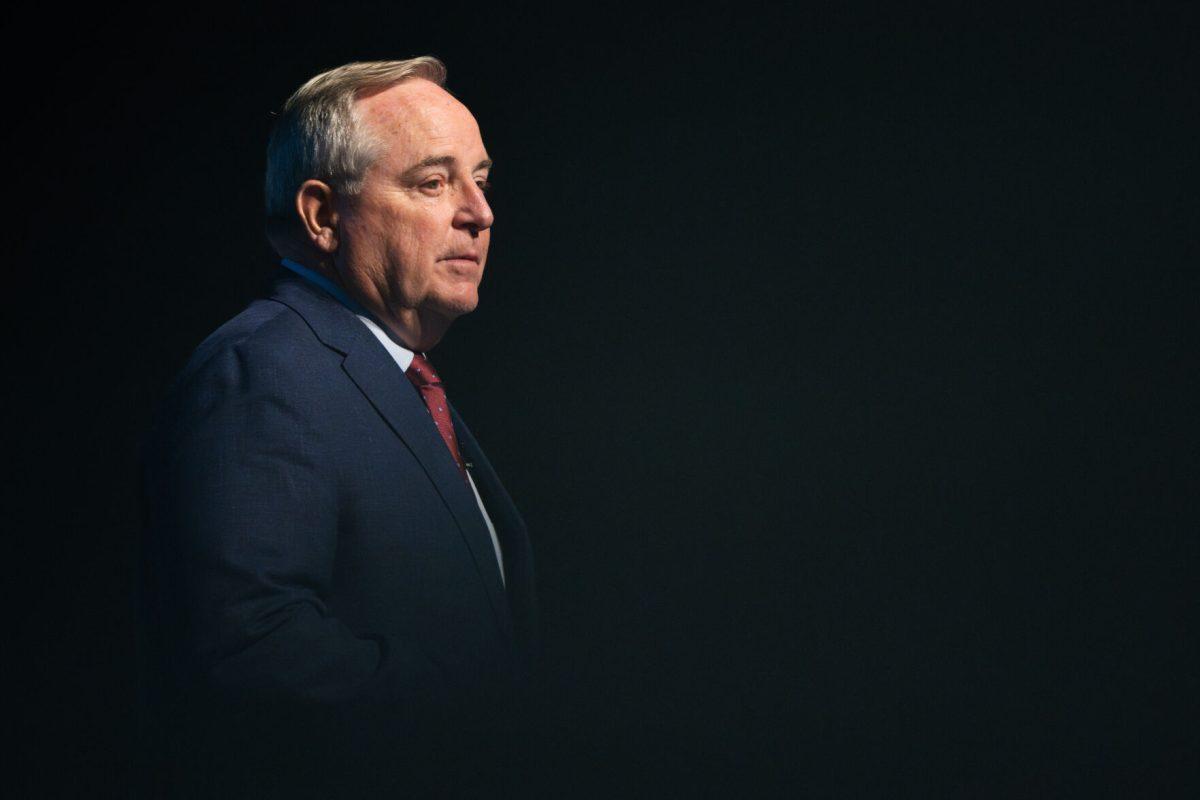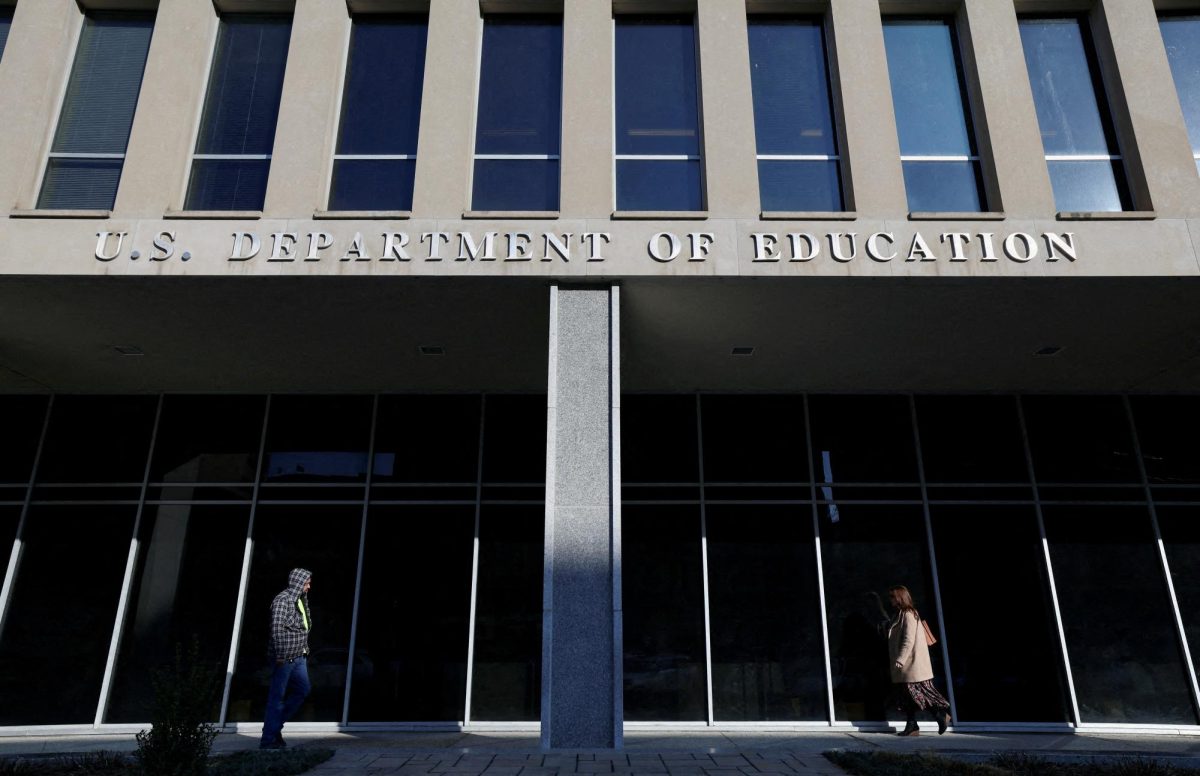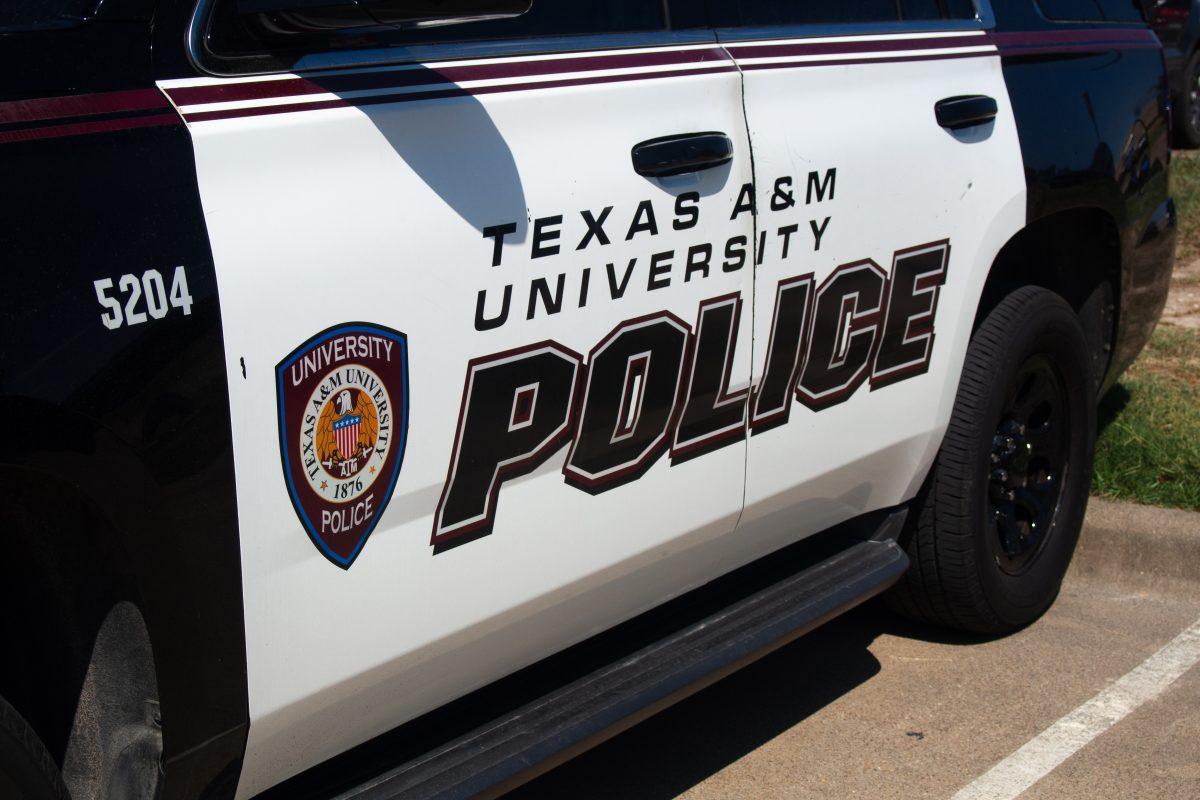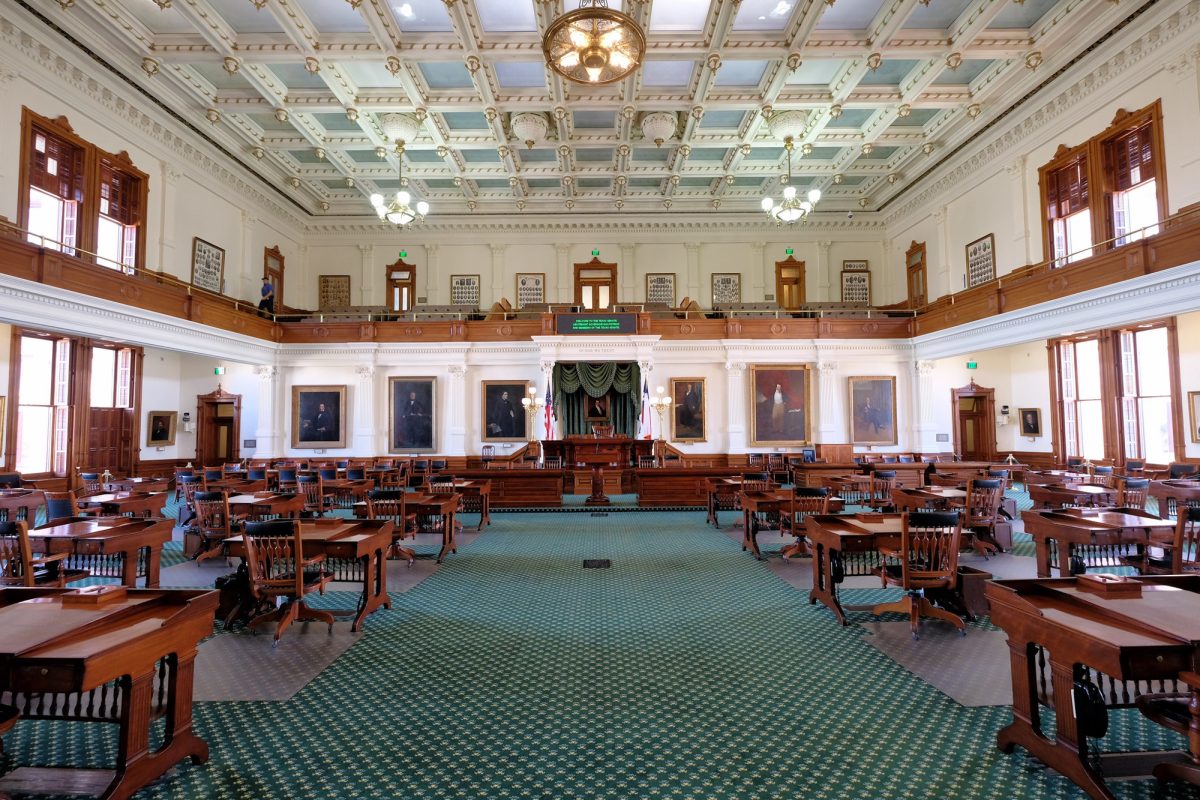Campus Voices: Aggie News
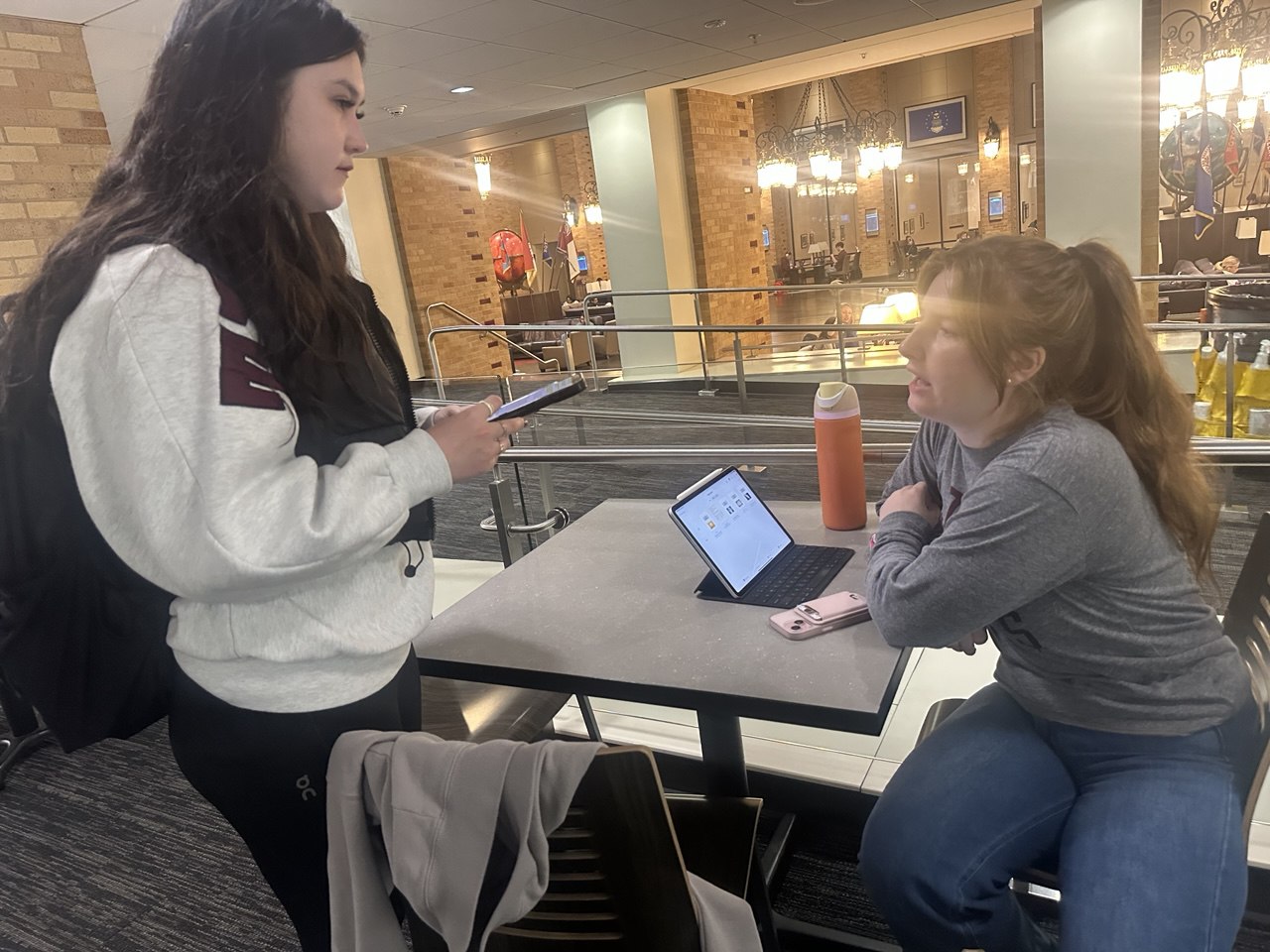
From support for banning products containing THC to concerns about the president’s attempt to end birthright citizenship, reporters from JOUR 203 900 interviewed people around the Memorial Student Center, or MSC, and Rudder Complex to ask how news-making national headlines affect students at Texas A&M.
A different set of reporters asked students about their support for legislation to clarify the state’s abortion law, their views on legalizing sports app betting in Texas and whether recent plane crashes had affected their willingness to fly.
The result is Campus Voices: Aggie News.
A recent poll showed around one in four Texans favor banning sales of THC products, while three of four favor legalizing recreational marijuana. While recreational marijuana is illegal in the state, hemp-derived products composed of less than 0.3% of THC, such as CBD and delta-8, are legal. Medicinal marijuana use is also legal under strict regulations and only for some medical conditions.
Asked to respond to the mixed messaging in the poll, 11 Aggies were split on what rules should govern products with THC and any use of marijuana, whether for recreational or medical purposes.
If passed, Senate Bill 3 would ban THC products in Texas while legalizing other forms of marijuana. In contrast, Senate Bill 1208 would legalize and regulate the use of recreational marijuana, according to The National Law Review.
A February poll conducted by the University of Houston’s Hobby School of Public Affairs showed that 24% of respondents favored a ban on consumable THC products in Texas, while another 31% somewhat supported the ban. It also found that 69% of respondents supported the decriminalization of recreational marijuana while 79% supported its medicinal use.
THC is the key ingredient of marijuana that causes a high, which has Texans raising the question: How can the government ban THC while legalizing marijuana?
Five of the 11 students said they agreed that policy around marijuana and THC should be made together, while two students thought they should be treated separately. Four people interviewed had no opinion on the question.
While civil engineering sophomore Noah Park hasn’t personally used either marijuana or THC, he said the substances go hand in hand when it comes to legalization.
“If you’re gonna ban one, you should ban the other,” Park said. “If you’re gonna support one, you should support the other.”
Business administration sophomore Lucas Ritzert and Ethan Doron, a political science and economics sophomore at RELLIS Academic Alliance, both said they agree that THC and marijuana should be treated separately, as they exhibit different effects on the user. The laws should address potency and age of users, they said.
“THC extract should be more punishable because that’s much more dangerous because the dose is just so high,” Ritzert said. “I feel like just your standard marijuana isn’t as bad, but THC oil and THC extract and the stuff that they used to make weed pens — I feel like that’s the stuff where you start getting into really dangerous territory.”
Doron likened the situation to alcohol laws in Switzerland, noting that different alcohol percentages require different levels of legalization. Texas should treat THC and marijuana based on consumption levels and percentages, Doron said.
Five of 11 Aggies agreed that recreational marijuana should be legalized in Texas, and eight agreed with the legalization of medicinal marijuana.
Civil engineering senior Jason Guzman said marijuana comes from the planet, and criminalization should be limited to people who sell to anyone under age 21.
“It’s natural,” Guzman said. “There’s not really any damage except if you’re putting others at risk. If you’re just doing it at home, chilling, then there’s no problem.”
With the conversation of marijuana and THC legalization comes the topic of penalties. Texans face up to 180 days in prison and a $2,000 fine for possession of two ounces or less of marijuana.
According to a 2024 article from Harvard Public Health, marijuana is in the federal process of being categorized as a less regulated drug, moving from Schedule I alongside heroin and LSD to Schedule III.
Political science sophomore Ashton Harmon noted that since marijuana has been decriminalized in many states, state legalization might lead to positive changes.
“Recreational use is kind of tricky for me,” Harmon said. “There are obviously a lot of states where it’s fine. I think that maybe if it’s legalized, it may not be abused as much.”
In 2023, the Texas A&M University Police Department announced a new policy in cooperation with the Brazos County attorney’s office on marijuana possession: Two ounces or less of marijuana will be confiscated with the offender referred to the county attorney’s office for possible future action but released if non-violent.
Agriculture and life sciences freshman Joeli Hardy believes making marijuana more accessible to those who need it could benefit Texans.
“I still think there should be restrictions, but I do think the penalties should be reduced,” Hardy said. “If it goes to stages one to three, I think being able to get more research and information on it is important. I think it should be more available to those who need it in a medical way.”
Six Aggies were asked how they felt federal policy actions regarding birthright citizenship and federal immigration had affected students, faculty and staff at Texas A&M.
Immediately following his inauguration on Jan. 20, President Donald Trump attempted to use an executive order to end birthright citizenship, which is conferred in the 14th Amendment to the U.S. Constitution. The Department of Homeland Security also announced on Jan. 21 that Immigration and Customs Enforcement and Customs and Border Protection are now permitted to go in or near sensitive areas, including college campuses. After the announcements, at least 10 lawsuits have been filed across the country challenging the executive order, as reported in the Houston Chronicle.
In the weeks following, four federal judges from Maryland, Seattle, New Hampshire and Massachusetts temporarily blocked the order. The Trump administration appealed to a three-judge panel of the 9th U.S. Circuit Court of Appeals, which declined to overturn the block, effectively preventing Trump’s it from going into effect, as reported by NBC News.
U.S. Congressman Rep. Brian Babin (TX-36) introduced a bill on Jan. 21 that would continue to confer citizenship to children born to a parent who is a citizen, national, permanent resident or an immigrant in the U.S. legally serving in the armed forces, as reported by The Texas Tribune.
Six Aggies said they believe the executive order and ICE policy changes will negatively affect families in Texas and people at A&M, while one student said she thought there could be some good through increased deportation actions.
Animal science freshman Summer Burkett said the case of Laken Riley is an example of why immigration actions like deportation should be pursued.
“The undocumented immigrants that are, not saying like all of them do it, but like the ones that are causing crimes, it could stop some crime rates,” Burkett said.
Laken Riley was a 22-year-old nursing student at Augusta University who was murdered by immigrant Jose Antonio Ibarra while on a run on Feb. 22, 2024, as reported by AP News. Ibarra had entered the country illegally and was sentenced to life in prison without parole after a jury found him guilty in November 2024.
An investigation by The New York Times and The Marshall Project that compiled data from 2007 to 2016 found no correlation between undocumented immigrants and a rise in violence or property crime in communities, according to a March 2024 article from NPR.
Animal science sophomore Evelyn Borges noted that people are less likely to come to the United States because of the risks of jeopardizing a newly built life.
“They don’t want to come here and risk anything like deportation,” Borges said.
Immigration attorneys from the Houston area have reported multiple phone calls from immigrants fearful about Trump’s policies and how they will affect their families, according to the Houston Chronicle.
Six Aggies agreed that fear would cause fewer people to go to work. Forensic and investigative sciences sophomore Kassandra Lozano noted some of her family members were not going to work out of fear of the ICE raids.
“Overall, Texas-wise, I’d say I feel like if a lot of people who are immigrants stopped going to work out of fear, then there would be a lot less things getting done,” Lozano said.
Animal science freshman Sophia Quillin said people have cultivated their communities but no longer feel welcome.
“When people come to this country they want what’s best for their kids,” Quillin said. “So when they start raiding hospitals and schools, migrants start to worry for the future of their kids.”
Following the DHS announcements about expanding ICE actions, Peter Lange, chief operating officer and senior vice president of Texas A&M, sent a memo to all students, faculty and staff clarifying federal law allowing ICE to access campus and public campus facilities, except dorms or dorm halls, unless they have a warrant. Lange instructed campus members to comply with all instructions by federal officers and notify the University Police Department if agents entered a classroom or dorm with a warrant.
Six people interviewed said Lange’s email has caused fear among some Texas A&M students. However, communication junior Ana Galeana acknowledged that the university has to comply, as does as every other public university in the country.
“Students are fearful,” Galeana said. “I do believe there are people on DACA who might necessarily not have the opportunity to [attend university] if they weren’t under [DACA].”
Animal science sophomore Sydney Hunt said the federal orders and A&M’s response have caused trust issues between students and A&M leadership.
“I don’t know if it’s likely to happen in like such a public setting in the schools and everything, but I feel like it definitely has [caused] some distrust between the faculty and the students,” Hunt said.
Passed in 2021, the Texas Heartbeat Act prohibits all abortions, with the only exception being when the mother’s life is at risk. Texas doctors and patients have asked lawmakers to clarify the current Texas abortion law during the current legislative session, according to the Houston Chronicle.
Though doctors can perform abortions when the mother’s life is at risk, they rarely do so out of fear their decision could be overruled by the court, resulting in their medical license being revoked. A group of 20 women who were denied abortion care signed onto a lawsuit to challenge the Texas abortion law in 2023, saying the law resulted in delayed or denied care that risked their fertility and lives, according to the Center for Reproductive Rights.
Republican lawmakers, including State Rep. Jeff Leach (R-67), said they plan to file legislation clarifying the abortion ban during this legislative session, according to a Jan. 22 article in the Houston Public Media. Apart from clarifying the life of the mother exception, a recent poll shows a majority of Texans surveyed would support adding new exceptions to the law for fetal anomalies, rape and incest.
Twelve Aggies were asked if they believe lawmakers should prioritize clarifying the current abortion law this legislative session. Eleven of the 12 agreed, including general studies freshman Angelica Chavez and construction science junior Braden Dial.
“Yes, I think that’s a priority as to what constitutes a life-threatening situation for the doctors,” Dial said.
Forensic and investigative sciences freshman Kahlil Wilks said clarifying laws on crucial topics is vital, especially regarding abortion.
“My mom went through an abortion,” Wilks said. “Without the care of doctors, [she] lost my sister, so it’s very important that we clarify these things and get medical help when needed.”
Industrial distribution junior Keaton Greenough said he thinks the law is already clear.
“I feel like [the law is] pretty clear already,” Greenough said. “I think I agree that the priority of the mother is important, but I don’t know what more revision there needs to be.”
Of the 1,200 Texans surveyed in the February poll, 84% percent said there should be an exception for fetal anomaly, and 83% approved of an exemption for pregnancies that result from rape or incest.
Nine out of 12 Aggies asked said they would support adding more exceptions to the ban, including kinesiology freshman Iris Klingbeil and chemical engineering sophomore James Jewson, who said he believed anyone should be able to get an abortion up until around the third trimester.
Animal science senior Eyleen Fuentes said abortion is healthcare, and everybody should be able to access that care if needed.
“I think all of those are valid exceptions,” Fuentes said. “I personally don’t agree with abortion just because of my personal beliefs and my religious stance, but I don’t think that’s a cause to just take it away from everybody.”
Electronic systems engineering technology junior Christopher Castillo and biomedical sciences senior Sarah Roberts said clear guidance on specific cases should be put into effect with a ban in place.
“I would be in support [of exceptions] because I don’t think an abortion ban should be that restrictive,” Roberts said. “I guess a better way to put it — I don’t think there should be an abortion ban at all.”
Business administration freshman Brock Newsome and manufacturing and mechanical engineering technology junior Owen Mundwiller both said they would not support adding exceptions.
“For religious reasons, I’m against abortion,” Mundwiller said. “I believe that whenever any sign of life is made in the womb, that sign is that God made a life for that child.”
Ten out of 12 Aggies said clarifying, strengthening and/or adding exceptions should be prioritized during this legislative session. General engineering freshman Colin Hill said he thinks they should focus on making the law broader, adding that he doesn’t like politicians telling doctors what they can and can’t do.
“I wish they would make it clear for each personal issue and set up a broad bill,” Hill said. “They don’t take into account certain situations because pregnancy and abortion has a lot of ins and outs, and I don’t think the laws we have in place cover everything. So it’s not fair coverage.”
Fuentes said addressing the exceptions would clarify a lot of confusion around abortion.
“I think it would just help women feel better or safer about the muddy waters surrounding abortion,” Fuentes said. “I think it’s a conversation that definitely should be had.”
Texas Gov. Greg Abbott offered his support for the legalization of sports betting during an appearance on the Texas Take podcast, according to the Houston Chronicle. Six Texas A&M students offered opinions on legalization, along with the pros and cons of sports betting.
Texas is one of 11 states without any form of legalized gambling and one of 19 that haven’t legalized mobile sports betting after a 2018 U.S. Supreme Court ruling passed authority from the federal government to states to regulate sports bets.
In 2023, the NCAA released a report that stated that gambling is a widespread activity on college campuses, with about 67% of students living on campus admitting to being bettors.
A Feb. 4 survey showed 73% of Texans support legalizing casino resorts, 60% support online sports betting and 56% support the operation of sportsbooks at professional sports venues, according to the Hobby School of Public Affairs at the University of Houston.
Of the six interviewed, one supported legalizing gambling, while five said the Texas law needs to change.
Industrial distribution junior Keaton Greenough said he agreed with Abbott’s recent support.
Forensic and investigative sciences sophomore Tucker Scott has never gambled, but he said it can be harmful, a major reason Texas hasn’t updated its law.
“Gambling can ruin your life and, like, relationships, so that’s probably why Texas is hesitant,” Scott said.
A bill that passed the Texas House with an 82-51 vote in 2023 created some momentum, though it failed to be picked up by the Senate. According to the Houston Chronicle, even if the Senate motions to examine a similar proposal in the future, several hurdles remain before any constitutional change can be made.
Greenough said that Texas’ geography plays a part in why he thinks Texans can’t agree on gambling
“It just has to do with the region,” Greenough said. “I feel like a more rural [area] would probably be less inclined to being open to something like that. But then bigger metropolitan areas are probably more inclined to open a casino.”
Technology and the internet have changed the gambling landscape in the 21st century, according to a 2023 article by the Centres for Health and Healing. Remote betting has replaced what used to be done in person, which further raises the question of whether a legislative change is needed to reflect the new environment. On top of the growth it’s already experienced, the U.S. online sports betting market is expected to increase by a 12% Compound Annual Growth Rate from 2022 to 2028, according to Ken Research.
The five students who leaned towards keeping the legislation the same had varying reasons, including the risk of addiction, financial stress and a lack of sustained success.
Architectural engineering sophomore Jacob Moss said legalizing sports betting is dangerous because of how easy it is to spend money on bets without thinking of the long-term consequences. Legislators may hesitate to legalize gambling to protect Texans.
“They’re aware how addictive gambling can be for some people,” Moss said. “If you have it in person at any event that you go to, it’d be very easy to say ‘Oh let me throw $5-10 while I’m here,’ and that can add up.”
Gambling was outlawed in Texas in 1903 as a response to gun fights and physical abuse, according to a Jan.3 article by Chron. In the 21st century, there is still a strong correlation between gambling and crimes, according to the Georgia Department of Behavioral Health and Developmental Disabilities, with roughly 50% of problem gamblers committing crimes.
Six Aggies agreed that current gambling legislation is outdated.
Mechanical engineering sophomore Nathan Harris said the law banning gambling could be revised to account for societal changes.
“Yeah, I’d say everything’s outdated,” Harris said. “I feel like we’re constantly growing so there’s no way to consistently keep up unless you change it every single day.”
Kinesiology senior Justin Click explained that online betting has different effects than the gambling that older generations are familiar with.
“If anything, they’re making it easier for kids now to do it,” Click said. “If you look back in the past, the only way you could go about gambling was actually going somewhere, like Vegas, and now we have gas stations that are just ridden with machines, and now everyone has a phone.”
Beginning with the mid-air collision of a Black Hawk helicopter and a passenger jet near D.C. on Jan. 29, there have been 13 fatal aircraft accidents in the national news so far in 2025. Four Texas A&M students reflected on airline safety, personal travel concerns and how their confidence in flying has been affected.
As of January 2025, the National Transportation Safety Board has reported 94 aviation accidents this year worldwide. Among them, 11 involved airliners, and five involved corporate jets, resulting in 97 fatalities. Even so, according to data from the 2024 Transportation Statistics Report from the Bureau of Transportation, air travel remains the safest form of transportation.
An average of 45,000 commercial and private flights take off daily in the U.S., carrying 2.9 million passengers across 29 million square miles of airspace, according to the Federal Aviation Administration. Despite the high volume, the odds of dying in a plane crash remain extremely low — approximately 1 in 13.7 million, according to a 2024 study from the Massachusetts Institute of Technology.
The crash between a U.S. Army Black Hawk helicopter and an American Airlines passenger jet killed 67 people and is the only fatal commercial aviation crash in the past 25 years.
Agricultural systems management junior Gavin Helfrick said his confidence in flying hasn’t changed much.
“I think accidents happen,” Helfrick said.
Others are more focused on identifying the root causes behind the recent incidents, including communication freshman Breanna Draper.
“I wanna know what changed or what happened with these flights that didn’t happen with the millions of flights last year,” Draper said. “I think they should really look into, like, what was the cause or how. Why did that happen all together at one time instead of last year? What changed?”
For psychology senior Aubrey Devine, the accidents have triggered more than just a little anxiety — they have led to a genuine fear of flying.
“I traveled over winter break and came back mid-January, and I was genuinely scared to get on a plane coming back,” Devine said.
Engineering freshman Joaquin Hernandez said the recent surge in aviation accidents has made him hesitant about flying, despite considering it essential for long-distance travel to visit family in El Paso.
“I don’t want to go on a plane because I mean, you hear about one or two plane crashes and you’re like, ‘Oh OK,’ but as they start piling up, it’s kind of like, ‘Damn, it could be anyone,’” Hernandez said.
Justin Silvas, a kinesiology senior and U.S. Navy veteran, said his experience working on helicopters has shaped his perspective on flight risks.
“It hasn’t really changed my aspect,” Silvas said. “They are flying death traps that crash often.”
The students interviewed had different perspectives on where or how safety changes should be made.
Beyond mechanical concerns, Devine believes pilot health and oversight should be a greater focus.
“Pilots, I don’t think, are tested as much for mental health as some other professions,” Devine said. “I think that would be a big factor to look into.”
Silvas said stricter regulations should be set for manufacturers and maintenance crews responsible for aircraft safety.
“I feel like it’s the people working on that aircraft that aren’t doing their job which causes mishaps,” Silvas said.
Hernandez said he was unsure what specific steps airlines and the FAA could take to improve safety, but he believed more needed to be done.
“I don’t even know what they could do to ensure better safety,” Hernandez said. “I just know something would have to be done, for sure. There has to be something more than whatever they’re doing right now.”
Local flight activity also plays a role in how the students perceive safety. College Station’s Easterwood Airport, which operates over 200 flights per month, experiences increased congestion during football season, according to the FAA.
Despite the airport’s proximity, Devine, Silvas, and Hernandez all agreed that they don’t worry about safety when near an airport, although Devine prefers driving when possible.
“I feel pretty safe being here,” Devine said. “I’ve never been like, ‘Wow that airplane is really close,’ or something like that.”
Silvas and Hernandez shared a similar perspective. Although they noted some safety concerns, they still considered flying the best option for long-distance travel.
“It’s either a plane or a 10-hour car ride,” Hernandez said. “I know I’m gonna end up having to get on a plane one day and pray it’s not me.”
Your donation will support the student journalists of Texas A&M University - College Station. Your contribution will allow us to purchase equipment and cover our annual website hosting costs, in addition to paying freelance staffers for their work, travel costs for coverage and more!

